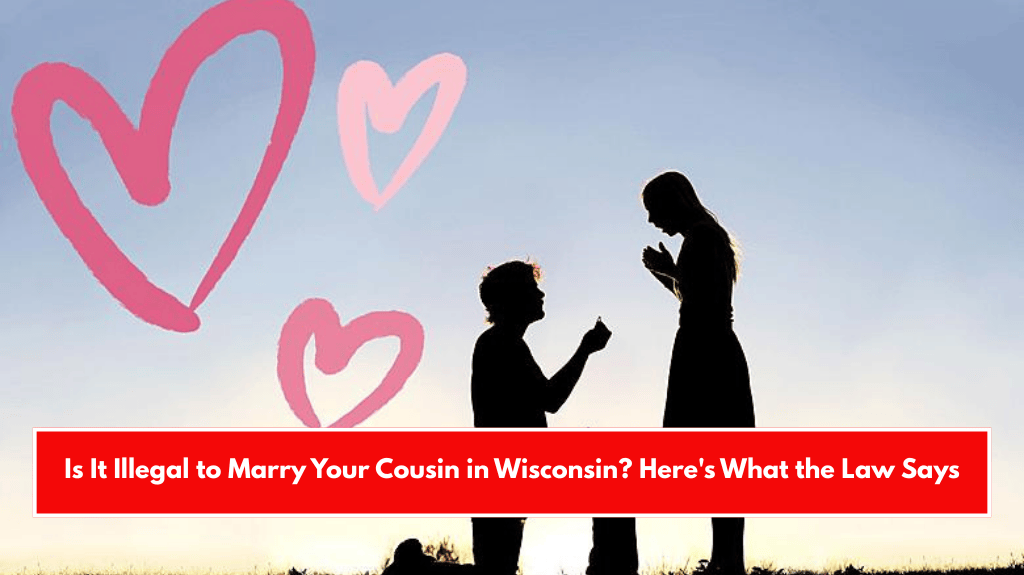Marriage between cousins is a complex legal issue in the United States, with each state setting its own rules. In Wisconsin, the law on cousin marriage is nuanced and includes specific exceptions. Here’s a comprehensive explanation based on the most current statutes and interpretations.
Wisconsin’s General Rule on Cousin Marriage
Wisconsin law generally prohibits marriage between first cousins. According to state statute, “no marriage shall be contracted…between persons who are nearer of kin than 2nd cousins”. This means that, under ordinary circumstances, first cousins are not allowed to marry in Wisconsin.
Exceptions: When Can First Cousins Marry?
There are two significant exceptions to this prohibition:
- If the female is at least 55 years old: The law permits first cousins to marry if the woman in the couple has reached the age of 55.
- If either party is permanently sterile: First cousins may also marry if either person submits an affidavit signed by a physician stating that one of them is permanently sterile at the time of the marriage license application.
These exceptions are designed to address concerns about the potential for children born of first-cousin unions, which can carry a higher risk of genetic disorders. By restricting marriage to couples where reproduction is not possible—either due to age or medical sterilization—the law seeks to mitigate these risks.
Legal Text: Wisconsin Statute 765.03
The relevant portion of the law reads:
“No marriage shall be contracted while either of the parties has a husband or wife living, nor between persons who are nearer of kin than 2nd cousins except that marriage may be contracted between first cousins where the female has attained the age of 55 years or where either party, at the time of application for a marriage license, submits an affidavit signed by a physician stating that either party is permanently sterile.”
This applies to both full-blood and half-blood cousins, as well as adopted cousins, since the law does not distinguish between these relationships.
Is First Cousin Marriage a Crime in Wisconsin?
Yes, marrying your first cousin outside of the above exceptions is considered a criminal offense in Wisconsin. Attempting to circumvent the law by marrying out of state may not help, as Wisconsin may not recognize such marriages if performed by its residents in jurisdictions where cousin marriage is legal.
Other Types of Cousin Marriages
- Second cousins and beyond: Marriage between second cousins or more distant relatives is legal in Wisconsin without restriction.
- First-cousin-once-removed: Wisconsin also prohibits marriage between first cousins once removed.
Summary Table: Wisconsin First Cousin Marriage Law
| Relationship | Marriage Allowed? | Exceptions/Notes |
|---|---|---|
| First Cousins | Generally No | Yes, if female is 55+ or either party is permanently sterile |
| Second Cousins or Distant | Yes | No restrictions |
| First Cousins Once Removed | No | Prohibited |
| Out-of-State Marriages | Not recognized if Wisconsin resident | May be void if performed to avoid Wisconsin law |
In Wisconsin, it is generally illegal for first cousins to marry. The only exceptions are if the woman is at least 55 years old or if either party is permanently sterile, as certified by a physician. Outside of these exceptions, such marriages are not permitted and may be considered a criminal offense. Second cousins and more distant relatives face no such restrictions.
Sources:
- https://en.wikipedia.org/wiki/Cousin_marriage_law_in_the_United_States
- https://law.justia.com/codes/wisconsin/2011/765/765.03.html
- https://codes.findlaw.com/wi/marriage-and-family-ch-765-to-770/wi-st-765-03/
- https://b105country.com/can-you-marry-your-first-cousin-in-wisconsin/
- https://docs.legis.wisconsin.gov/statutes/statutes/765/03?view=section















